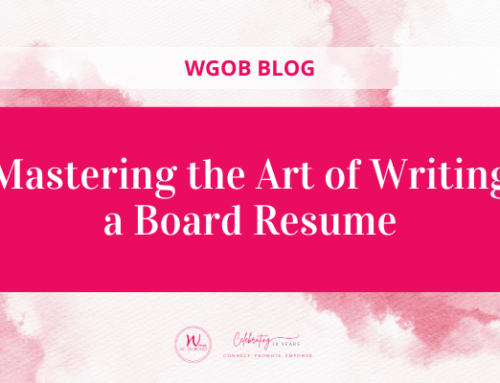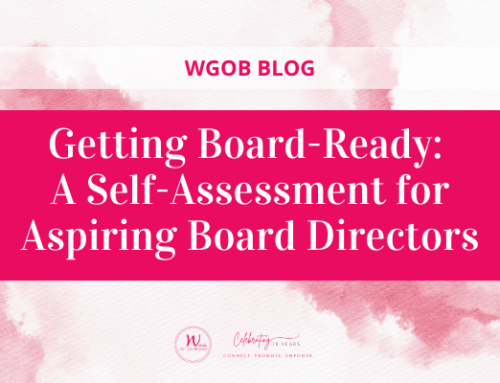So you’ve been invited for a board interview. Congratulations! Now, it’s time to prepare.
A board interview is similar to a job interview, but they are not the same. Unlike a job interview, board interviewers won’t be evaluating you on your operational skills. They’ll be evaluating your governance skills. You will be expected to look at the company from a governance point of view rather than a management viewpoint.
Here are the 10 steps we recommend to prepare for your next board interview.
1. Prepare, prepare, prepare
Make sure you know which members of the board you will be meeting. Know their background, experience and skills. Find out who the independent board members are and what the ratio of executive to non-executive members is.
2. Gain a strategic understanding of the company
Understand the opportunities and challenges that the company is facing. Is it going through transformational changes, or a period of high-growth through acquisitions?
3. Research, research, research
Do your due diligence. Go on SEDAR and read the company’s latest annual report, annual proxy circular, quarterly filings and press releases. Also check out the company’s social media and pay attention to what is trending online about the company.
4. Know your value proposition
Be prepared to explain the value-add you will bring to the board. For more on this topic, review our blog, Building Your Board Resume FAQs
5. Understand conflicts
Make sure you have the time to commit to this board and it doesn’t conflict with your other board commitments. You should also check for any conflicts of interest with your current employer or other involvements.
6. Understand the culture of the board
As questions about the current board composition and culture. Is it collegial? Does the board evaluate its own performance? Does it have a diversity policy? Will you be the first woman on the board?
7. Know the committee structure
Pay attention to the committees that exist and which ones you may be asked to join.
8. Know your expected contribution
Ensure that you understand why the company identified you as a candidate.
9. Research the compensation
Review the company’s board compensation in their annual proxy circular. Is the compensation in line with what you are looking for? Are board members expected to purchase shares? How often is there a board compensation review?
10. Practice, practice, practice
Prepare for the kinds of questions you will be asked and make sure you have a strong understanding of the company. Then, practice your answers with a trusted friend or colleague. It is especially useful if the person you ask has a good understanding of board governance.






